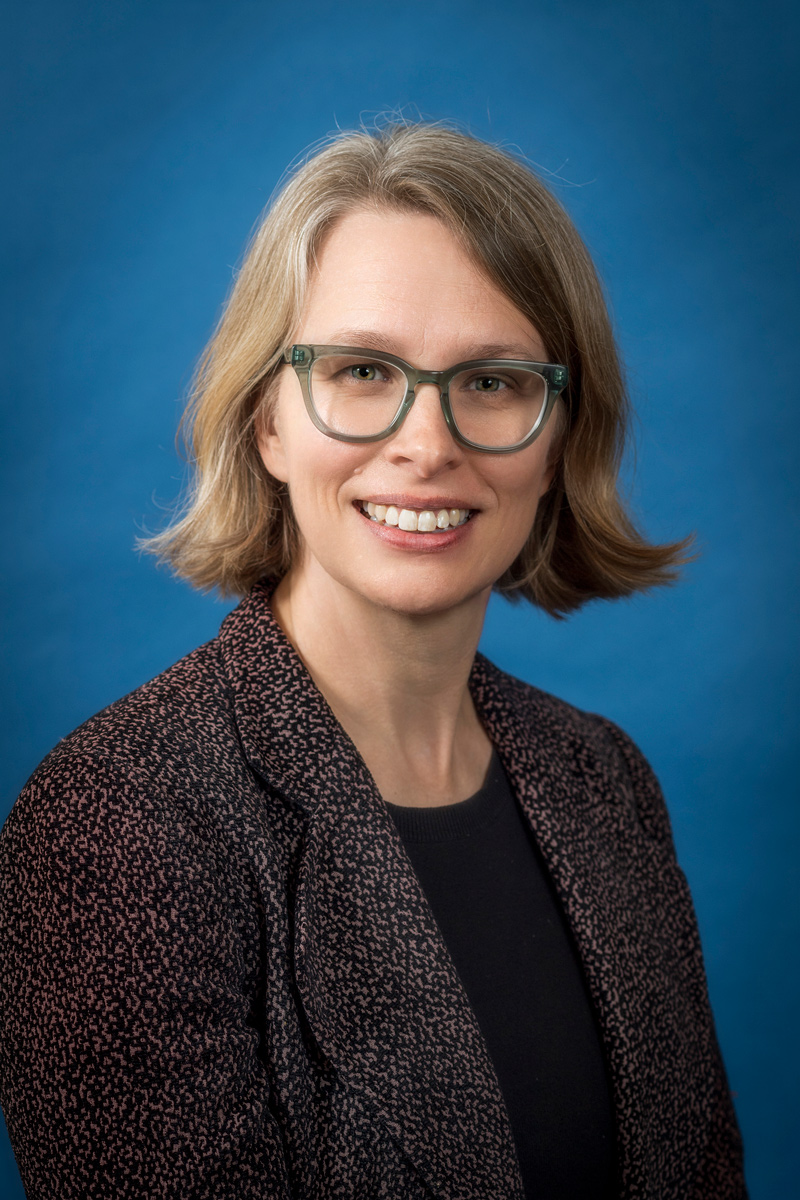


How I Teach — Anthropology
Illustration by Jeffrey C. Chase April 10, 2023
Professor Kedron Thomas helps students explore cultures while boosting their academic skills
Editor’s note: First-year students, prospective students (and some of their parents) wonder and worry how they will handle the academic transition from high school to college. In a series of stories, UDaily speaks with University of Delaware professors who teach courses commonly taken by students during their first year on campus. The series includes professors who teach biology, writing, business, calculus, political science and sociology, and those stories can be read on the How I Teach website. In this story, Associate Professor Kedron Thomas explains her approach to teaching cultural anthropology.
When students at the University of Delaware first see the course title “Introduction to Cultural Anthropology,” they might know very little about the field of study. But, Kedron Thomas said, they are likely to be quite interested already in what she is about to teach them.

“They probably never had an anthropology class in high school, but the word ‘cultural’ interests them because they want to find out more about different people and different cultures,” she said, noting that the course satisfies a UD multicultural requirement. “This class is an opportunity to engage them in issues they may already have thought about, but they didn’t realize that anthropologists study those subjects.”
Thomas, an associate professor in the Department of Anthropology, sees the popular course as a way to expose students not only to the many aspects of the discipline but also to the world at large. Cultural anthropologists explore all aspects of daily life, from identity and gender to health and family, particularly how they differ in different parts of the world.
“I see this class as a way to introduce students to the vast diversity of how people live,” Thomas said. “It’s fun for me to have this amazing opportunity to open up a new world to students.”
She has a second important goal in teaching the class as well. Especially because so many of the students are relatively new to the University, Thomas wants to use the course material and related academic work to help them improve their study skills in ways they can bring to all their UD courses.
Many students, she said, did well in high school without necessarily developing expertise in time management or in learning and remembering information — the kinds of practices that will be critical for success in higher education.
“They may not have asked themselves: What are the best practices for taking notes, for studying for exams, for retaining information?” Thomas said. “But we know those best practices, based on research, and I’m excited to share that with them.”
From the beginning of the semester, she assigns students about a half-dozen brief, low-stakes activities or exercises that target study skills, supplementing the homework that directly involves the course content. Exercises include watching a short video discussing misconceptions about how we learn, writing a paragraph about the student’s own study methods, practicing active-reading techniques and creating and sharing a visual study guide.
She also surveys her students and has found that each semester about half tell her they have made significant changes in the way they study and have seen marked improvement in their work.
“My goal is that, as they’re learning the course content, they’re also learning how to learn the course content” and can apply those lessons to other classes they will take in the future, she said.
Support for teaching at UD
Thomas attributed much of her focus on helping students develop new ways to improve their learning to the University’s Center for Teaching and Assessment of Learning (CTAL), which offers a wide range of resources and programs for faculty seeking to enhance their teaching methods.
She is taking part in the center’s Foundational Course Initiative, created to help faculty better support and engage students in the learning process, particularly in introductory classes. The research-based initiative offers participants such assistance as workshops on best practices, individual mentoring and the opportunity to meet with colleagues in small groups to discuss tools and techniques they are using in their classrooms and share those results.
Jennifer Trivedi, assistant professor of anthropology, who also teaches “Introduction to Cultural Anthropology,” agreed with Thomas about the value the CTAL program has brought to her own teaching. An applied anthropologist, Trivedi said she wants her students — regardless of their class year or major — to learn the fundamentals of the discipline and, most importantly, how they can use that knowledge in their daily lives.
She joined the CTAL initiative to learn ways to make her class even more engaging and, like Thomas, to help give her students tools they can use in all their studies.
When she meets with other faculty to discuss teaching, Trivedi said she finds that any challenge someone may be having in their classroom has usually been experienced by others, who can offer helpful suggestions for solutions that worked for them.
Both she and Thomas, who are both designated Provost Teaching Fellows and in their second year with the Foundational Course Initiative, recommend the program to other faculty members.
“The people at CTAL are so enthusiastic and expert in this subject,” Thomas said. “It’s really impressive the amount of support the University of Delaware provides to teaching.”
Transforming online learning
The introductory course in cultural anthropology is being offered remotely, and both Thomas and Trivedi said they’ve worked hard to formulate the class so that students feel part of a learning community, even if they’re not meeting their classmates and professors in person.
Thomas said she never expected to enjoy online teaching, but she has been surprised by how positive the experience has been. And she recognizes that students, who often have work and family responsibilities, appreciate the flexibility that taking an occasional online class gives them.
“I remind them that it’s a ‘real’ class. From Day One, my students are divided into small groups, and they have assignments in which they interact,” Thomas said. “That also creates a study group, so they can get together and ask each other questions or have discussions.”
She and Trivedi emphasize to students that the class requires the same amount of work as if it were meeting in person. They schedule assignments to ensure that students keep on track with time management and don’t fall behind.
“I also want students to know that there is still a student-teacher relationship, even online, and that they can come to me with questions or concerns anytime and I’ll listen to them,” Trivedi said. “They’re not out there alone on the internet; they’re part of a class and a community of learners.”
Support for Academic Success
The University of Delaware empowers all Blue Hens with the skills and strategies they need to succeed.
UD students in any major are encouraged to take advantage of a range of peer tutoring services, as well as comprehensive skill-building resources offered by the Office of Academic Enrichment (OAE). Most services are available free of charge. To learn more, visit the OAE website. Students may also utilize the Blue Hen SUCCESS platform to connect with their academic advisor or access additional resources on Advising Central.
For UD’s community of educators, the Center for Teaching and Assessment of Learning (CTAL) offers programs, workshops and confidential consultations to support faculty as they develop and achieve their pedagogical goals. UD instructors at every stage of their career are invited to explore online and contact ctal-info@udel.edu.
How I Teach — Series
The How I Teach website provides a collection of the stories in this series.
Contact Us
Have a UDaily story idea?
Contact us at ocm@udel.edu
Members of the press
Contact us at 302-831-NEWS or visit the Media Relations website

